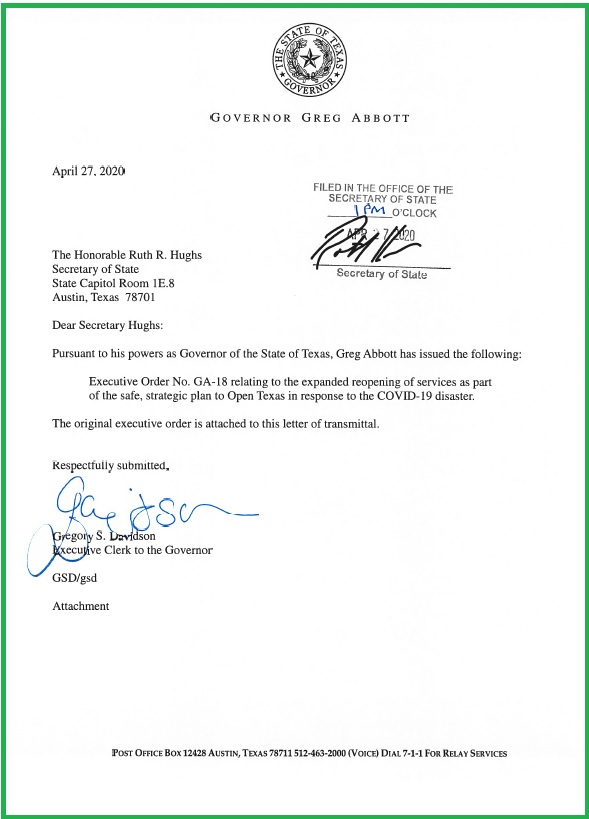Texas Sales Tax Holiday is Aug. 11-13

Burnet County shoppers can save money on a number of items, including school supplies and school clothes priced below $100, during the annual sales tax holiday, scheduled for this Friday through Saturday, Aug. 11-13, Texas Comptroller Glenn Hegar said.
State law exempts most clothing, footwear, school supplies and backpacks priced below $100 from sales tax, which will save shoppers around eight to 8.25 percent ($8 ro $8.25) for every $100 they spend during the weekend.
“Most folks won’t hear the back-to-school bell for another month, but it’s never too early to take advantage of the opportunity to save money on everything from ball caps to ballpoint pens,” Hegar said. “As the father of three young children, I know how these expenses can add up.”
Lists of apparel and school supplies that may be purchased tax-free can be found on the Comptroller's website at TexasTaxHoliday.org.
This year, shoppers will save an estimated $87 million in state and local sales taxes during the sales tax holiday.
Texas’ tax holiday weekend has been an annual event since 1999.
Backpacks priced less than $100 sold for use by elementary and secondary students are exempt during the sales tax holiday. A backpack is a pack with straps one wears on the back. The exemption includes backpacks with wheels, provided they can also be worn on the back like a traditional backpack, and messenger bags.
The exemption does not include items that are reasonably defined as luggage, briefcases, athletic/duffle/gym bags, computer bags, purses or framed backpacks. Ten or fewer backpacks can be purchased tax-free at one time without providing an exemption certificate to the seller.
Texas families also get a sales tax break on most school supplies priced at less than $100 purchased for use by a student in an elementary or secondary school.
On a Business Account
Persons buying qualifying school supplies during the holiday are not required to provide an exemption certificate – with one exception. If the purchaser is buying the items under a business account, the retailer must obtain an exemption certificate from the purchaser certifying that the items are purchased for use by an elementary or secondary school student. "Under a business account" means the purchaser is using a business credit card or business check rather than a personal credit card or personal check; being billed under a business account maintained at the retailer; or is using a business membership at a retailer that is membership based.
Retailers are not required to collect state and local sales or use tax on most footwear and clothing that are sold for less than $100 during the holiday. Exemption certificates are not required.
The exemption applies to each eligible item that sells for less than $100, regardless of how many items are sold on the same invoice to a customer. For example, if a customer purchases two shirts for $80 each, then both items qualify for the exemption, even though the customer's total purchase price ($160) exceeds $99.99.
The exemption does not apply to the first $99.99 of an otherwise eligible item that sells for more than $99.99. For example, if a customer purchases a pair of pants that costs $110, then sales tax is due on the entire $110.
The exemption also does not apply to sales of special clothing or footwear that the manufacturer primarily designed for athletic activity or protective use and that is not normally worn except when used for the athletic activity or protective use for which the manufacturer designed the article.
For example, golf cleats and football pads are primarily designed for athletic activity or protective use and are not normally worn except for those purposes; they do not qualify for the exemption. Tennis shoes, jogging suits and swimsuits, however, are commonly worn for purposes other than athletic activity and thus qualify for the exemption.
The sales tax holiday exemption does not extend to rental of clothing or footwear; nor does it apply to alteration (including embroidery) or cleaning services performed on clothes and shoes. Additionally, tax is due on sales of accessories, including jewelry, handbags, purses, briefcases, luggage, umbrellas, wallets, watches and similar items.






